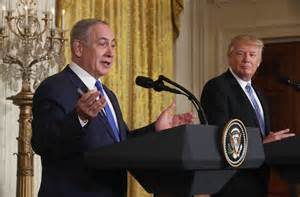
My career as a print journalist allowed me to do many remarkable things, and to see many remarkable places.
Two of those career elements came together a decade ago. I now will explain.
About two or three weeks after I reported for work at the Amarillo Globe-News, my boss — publisher Garet von Netzer — informed me that someone from the Rotary Club of Amarillo would call me and invite me to join that Rotary club. “We need to have someone in that club,” von Netzer said. Thus, I was slated to join the Rotary Club of Amarillo. When Garet von Netzer said I would join, well, I had no choice.
I got the invitation from the late Basil Walker. I joined and then settled into my membership. I made a lot of new friends. More than that, though, I developed many valuable sources for potential issues I might cover as editorial page editor of the Globe-News.
Some years later, in 2008, I applied for — and received — an appointment to lead a team of young professionals to Israel as part of Rotary International’s Group Study Exchange.
That journey illustrated how my career allowed me to travel abroad. I was able to travel twice to Southeast Asia; I traveled three times to southeastern Europe; as president of the Rotary club, I was allowed to travel to Denmark and Sweden to attend Rotary International’s annual convention in 2006.
Then came this Israel adventure.
I was torn while training with my team members for this event. In late 2008 and early 2009, violence erupted in Gaza. Hamas terrorists lobbed rockets on Israeli communities. The Israelis responded with brute force, inflicting considerable damage at quite a cost in human life.
If the Israeli counteroffensive were to continue, our trip might be canceled. My Rotary mentor — with whom I was working to prepare for the trip –told me that RI was working closely with the State Department monitoring the situation in early 2009.
Israel’s potent armed forces took control. They put down the Hamas uprising. Order — if not peace — eventually was restored.
Our trip commenced in May 2009. We would spend four weeks in Israel. We stood on the doorstep of the Gaza Strip. We looked down onto the valley below the Golan Heights. We stood below a fortified fence along Israel’s northern border with Lebanon, where another terror outfit, Hezbollah, was capable of doing damage.
For the entire four weeks, I harbored a wish; it wasn’t exactly a secret, although I don’t recall sharing it with our Israeli hosts. I wanted all hell to break loose while we were there.
No, I did not want to put our team in danger. I would have hoped we could get them on the next plane out and headed for home.
However, the reporter in me wanted to be able to cover events unfolding in real time.
It didn’t happen. Our journey was spectacular, even in the absence of violence and mayhem.
Don’t misunderstand me on this. I have never, ever harbored an instant of regret over the peace and tranquility we enjoyed while traveling through one of the world’s most thrilling nations.
If it had gone the other way, though . . . I was ready.



